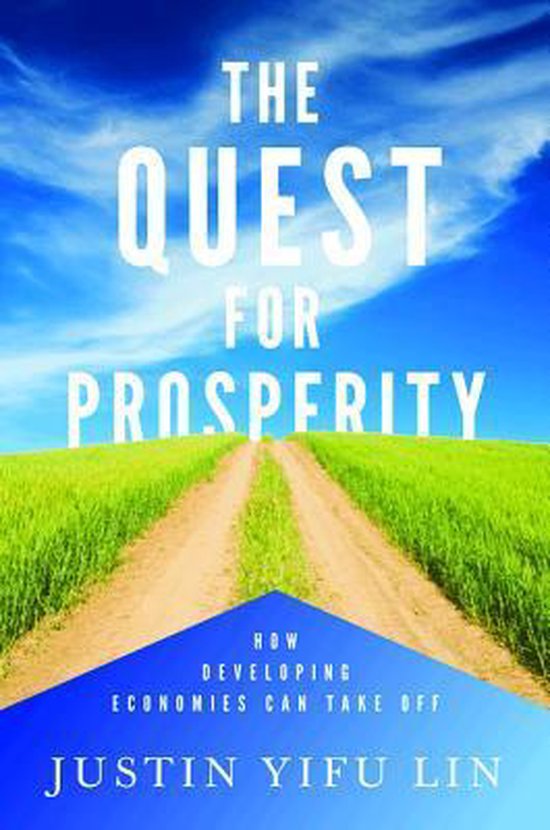De Boeken van Wouter
The Quest for Prosperity
The Quest for Prosperity
No se pudo cargar la disponibilidad de retiro
Titel: The Quest for Prosperity
Schrijver: Justin Lin
Bindingswijze: Hardcover
EAN: 9780691155890
Conditie: Goed
Let op: Hieronder staat een algemene beschrijving van hoe wij onze conditietypes classificeren. Als u een nauwkeuriger beeld wilt of specifieke vragen heeft, stuur ons dan een bericht en we kijken het graag voor u na.
Conditie-omschrijvingen:
- Als Nieuw: Nauwelijks gebruikssporen, bijna als nieuw.
- Goed: Kan lichte gebruikssporen vertonen, zoals wat verkleuring of een naam op de schutbladen, maar doorgaans geen onderstrepingen of aantekeningen in de tekst.
- Redelijk: Boek in redelijke staat. Kan gebruikssporen vertonen, zoals verkleuring, leesvouwen in de rug, onderstrepingen, aantekeningen, lichte vervuiling aan de randen, ezelsoren of een kromme rug.
- Nieuw: Boek is nieuw.
Beschrijving:
How can developing countries grow their economies? Most answers to this question center on what the rich world should or shouldn't do for the poor world. In this book, the author - the first non-Westerner to be chief economist of the World Bank - focuses on what developing nations can do to help themselves.
How can developing countries grow their economies? Most answers to this question center on what the rich world should or shouldn't do for the poor world. In The Quest for Prosperity, Justin Yifu Lin--the first non-Westerner to be chief economist of the World Bank--focuses on what developing nations can do to help themselves. Since the end of the Second World War, prescriptions for economic growth have come and gone. Often motivated more by ideology than practicality, these blueprints have had mixed success on the ground. Drawing lessons from history, economic analysis, and practice, Lin examines how the countries that have succeeded in developing their own economies have actually done it. He shows that economic development is a process of continuous technological innovation, industrial upgrading, and structural change driven by how countries harness their land, labor, capital, and infrastructure. Countries need to identify and facilitate the development of those industries where they have a comparative advantage--where they can produce products most effectively--and use them as a basis for development. At the same time, states need to recognize the power of markets, limiting the role of government to allow firms to flourish and lead the process of technological innovation and industrial upgrading. By following this "new structural economics" framework, Lin shows how even the poorest nations can grow at eight percent or more continuously for several decades, significantly reduce poverty, and become middle- or even high-income countries in the span of one or two generations. Interwoven with insights, observations, and stories from Lin's travels as chief economist of the World Bank and his reflections on China's rise, this book provides a road map and hope for those countries engaged in their own quest for prosperity.
Share

